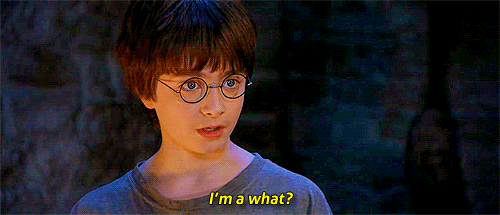I know it sounds crazy, but I love talking with my characters in my head. It helps me give them different voices and antics. And I learn a lot about them.
Sometimes I create scenes for a character, and sometimes I create a character for a scene. Either way, I need to know a few things from them before I write them in a part.
1. Appearance. This can be general, such as hair, eye, and skin colors. I feel like this helps me get a sense of what their personality should be. For example, a brunette guy with green eyes might tell me that that character should be stern and serious. A blonde girl with blue eyes might tend to be more fun-loving but not as adventurous as she might be if she were a brunette. I’m not saying my characters are always these stereotypical, but knowing what they look like gives me a good jumping-off point to discovering the rest of their character.
2. Name. I love names! Seriously, I spend hours on baby names websites, so I have a good list of all my favorite names. I like to know my characters’ names: full names for main characters, first and last for secondary characters, and either first or last for minor characters. Villains (and even heroes, I suppose) could have multiple names, and it’s good for the writer to figure them all out at the beginning so the reader doesn’t get confused.
3. Age. If the book(s) span several years, you need to know what their starting ages are, birth dates or birth months, and what time of the year your story starts out in. The key is consistency. You want your reader to know you have an idea of where your characters are in their lives. That way Bilbo doesn’t have his 40th birthday in May and his 111th in December. Minor characters can be vaguer: “an ancient man with a withered beard” or “a lanky teenager.” Remember that “a baby” can become a walker, a talker, and then a little kid if your book(s) span three years or so.
4. Personality. I prefer to figure this out before I write even their first scene although there have been times a character surprises me and wants to be something different. Is this person honest, thoughtful, and soft-spoken? Are they really what they appear to be? What will make them reveal their true colors? Do they get overwhelmed when faced with change? What are they most afraid of? What do they want most? Are they confused about their life’s purpose? Minor and secondary characters might not even need so many questions, but your primary characters most certainly do. Knowing someone’s personality will help with writing dialogue, actions, thoughts, and everything else that person does.
5. Past. Orphaned as an infant? Abused as a child? Apprenticed at twelve? Spoiled only child with adoring parents? First husband died? Moved from another country? Even if your characters and readers never find out the past, you as the writer should have an idea. The villain and main characters should all have a small part of the past that affects them because that’s how it is in real life. We may never see that little Johnny was scared of the dark growing up, but you bet it will make him avoid men dressed in all black today.
6. One little quirk. A secret. A habit. A dislike. A passion. A hurt. A thing for knives or stuffed animals or books. At least one something that makes them different from your other characters.
And then you’re off to the races! Er…writing. And writing. And writing. And eventually, you will find your characters refusing to do things you wanted them to in the beginning, and you’ll just have to go with it! This is just a starting point. These are just the few things that I like to discover in the beginning.
After I’ve written the book, I love finding my characters faces. This means searching the web, Pinterest, and IMDB for faces that look like whatever you’ve pictured in your head over the months or years you wrote your book.
Good luck!
~Madeline









